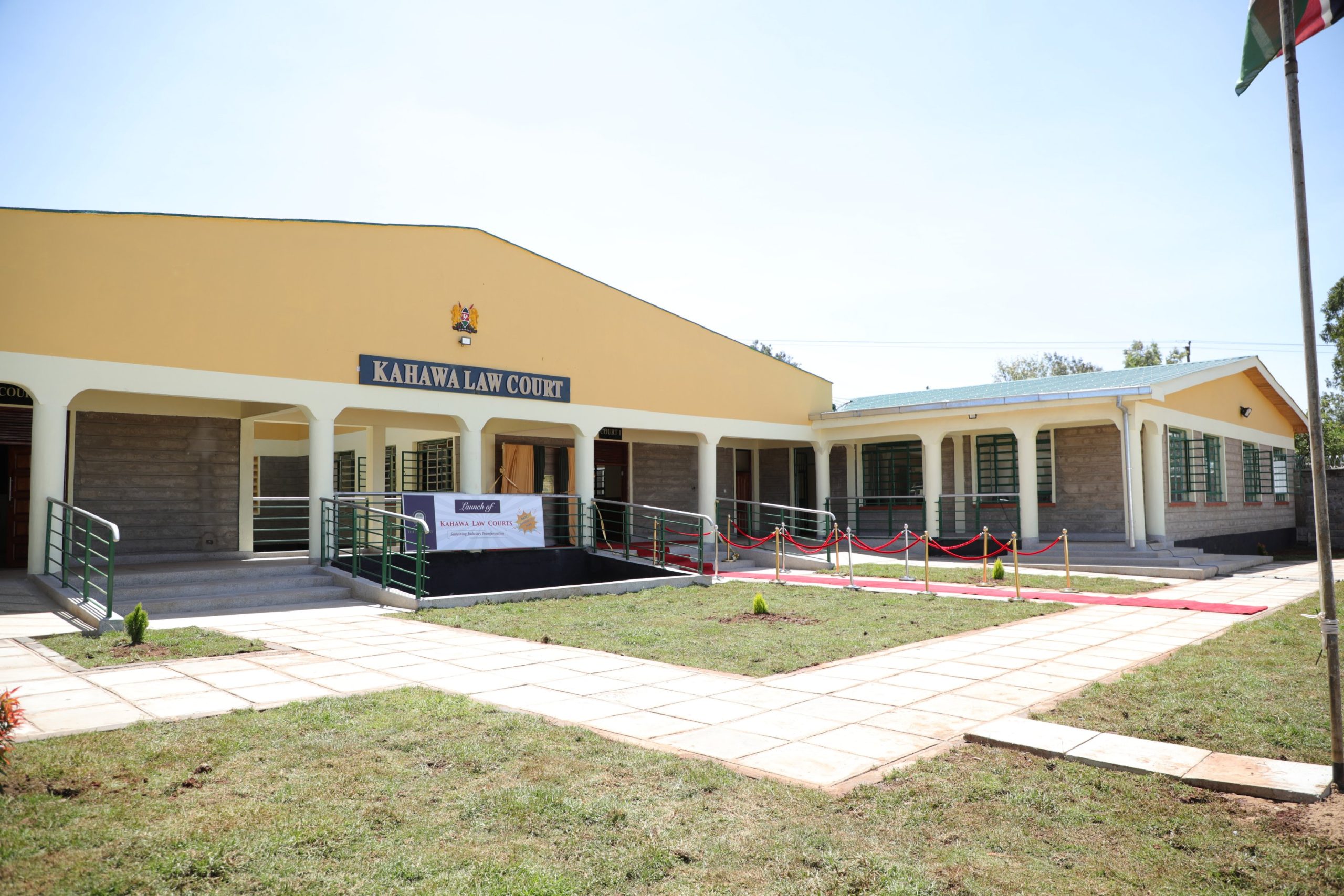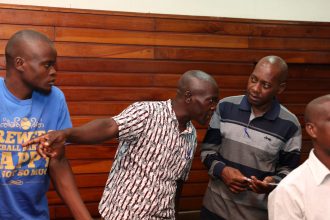Three men were charged at the Kahawa Law Courts on Wednesday with conspiracy to commit a terrorist act, alongside additional charges of identity fraud.
The accused—Isaq Cabdi Xasan, a Somali national also known as Issack Mohammed, and Kenyan nationals Noor Yakub Ali and Yusuf Maalim—were brought before Principal Magistrate Gideon Kiage.
According to the prosecution, led by Duncan Ondimu and James Machira, the trio conspired on or before February 18, 2025, to carry out a terrorist act involving the kidnapping of a foreign national working at a Sinohydro Corporation Limited sewerage construction site in Mandera town.
Sinohydro, a Chinese state-owned enterprise known for its global infrastructure projects, has been operating in Kenya as part of its extensive portfolio across 74 countries.
The court heard that the three men were also members of Al-Shabaab, an outlawed terrorist group designated as a foreign terrorist organisation by the U.S. State Department since 2008.
Al-Shabaab has a notorious history in East Africa, responsible for mass-casualty attacks such as the 2013 Westgate mall siege in Nairobi, which killed 67 people, and the 2015 Garissa University attack that claimed 148 lives, primarily targeting foreigners and Christians.
Kenyan authorities confirmed the accused’s affiliation with the group, citing their membership as of February 21, 2025, in violation of Kenyan Gazette Notice No. 2326 of April 7, 2015.
Charges and Pleas
The trio pleaded not guilty to the terrorism-related charges, which include conspiracy to commit a terrorist act and membership in Al-Shabaab. However, the case took a complex turn with additional charges of identity fraud.
Noor and Yusuf were jointly accused of facilitating Isaq in fraudulently applying for a Kenyan identity card, resulting in the issuance of an acknowledgment for registration card (S/No. 257117796) on July 3, 2024, in Mandera. Both pleaded not guilty to this charge.
Isaq, however, faced separate charges of attempting to obtain a Kenyan identity card under false pretenses by posing as a Kenyan national at the Mandera County Registrar of Persons office.
He was also charged with being unlawfully present in Kenya. Isaq pleaded guilty to these charges and was convicted on the spot. The prosecution pushed for the maximum sentence on these counts, with sentencing scheduled for April 4, 2025.
Yusuf faced an additional charge of providing false information to a public servant, further complicating the case.
The prosecution opposed the release of the accused on bail, citing the severity of the charges and the risk they pose.
Magistrate Kiage ordered a pre-bail report and set the bond ruling for April 4, 2025. In the meantime, the three men were remanded to Kamiti Maximum Security Prison, located near the Kahawa Law Courts, a specialised counter-terrorism court established in 2020 to handle such high-risk cases.
<hr />
<h5>Stay updated with our weekly newsletter. Subscribe now to never miss an update!</h5>
<hr />
Context of the Case
The Kahawa Law Courts have become a focal point for terrorism-related prosecutions in Kenya, supported by the U.S. government as part of its counter-terrorism cooperation with the country.
Al-Shabaab frequently targets foreign nationals, security forces, and civilian infrastructure, often employing tactics like kidnappings, IED attacks, and small-arms assaults.
This case also highlights the growing issue of identity fraud in Kenya, a country identified as high-risk for such crimes in a 2023 Identity Week report.
Fraudulent identity documents have been a recurring tool for terrorist networks, enabling operatives to move freely and evade detection.
The Central Bank of Kenya has previously warned about identity theft, noting that fraudsters often use stolen personal information to conduct financial transactions or impersonate citizens, as seen in this case.
As the case progresses, it will likely draw attention to Kenya’s legal and security frameworks for combating terrorism and identity fraud.
However, the outcome of this case could set a precedent for how Kenya balances national security with the rights of the accused, especially in high-profile terrorism trials.
The sentencing of Isaq and the bond ruling for all three accused on April 4, 2025, will be closely watched by both local and international observers, as Kenya continues its fight against terrorism in a volatile region.












